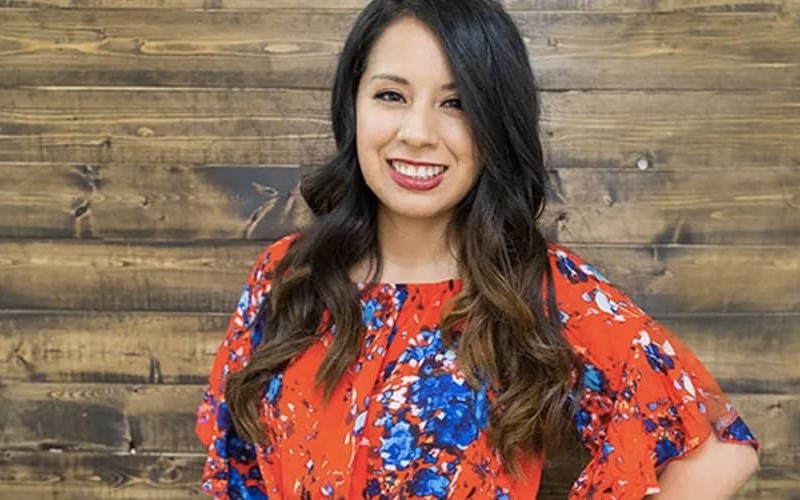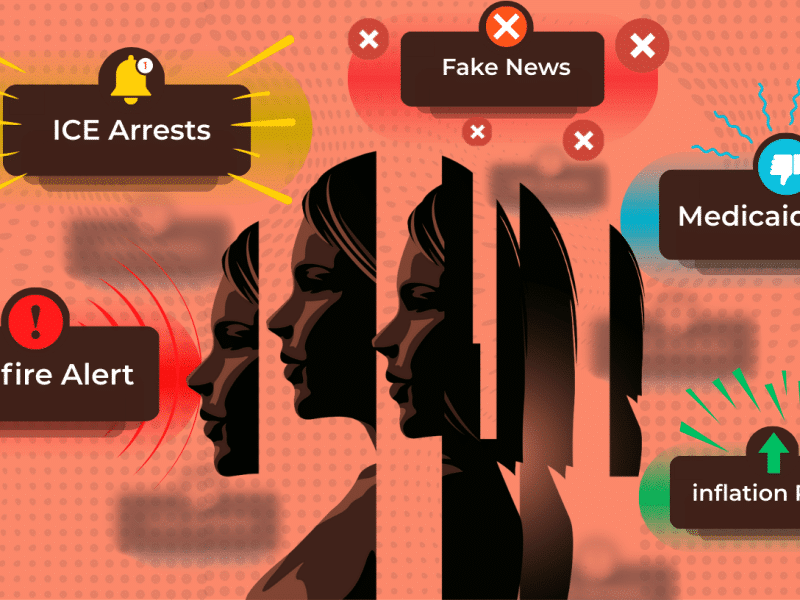Adriana Alejandre’s Latinx Therapy Offers Vital Mental Health Resources to the Latine Community
We all need someone to talk to, but finding the right therapist can be a challenge. For the Latine community, the search can be even more difficult. Learn how one therapist is breaking down barriers.

Adriana Alejandre didn’t expect the overwhelming response she received when she opened her private practice, Counseling and Trauma Therapy, in Burbank, California in 2017. The Licensed Marriage and Family Therapist (LMFT) was inundated with requests from people from all walks of life including many from the Latine community. “Not only was I one of the only trauma therapists in the area, but I was also the only bilingual therapist in the area, so I got full really, really quickly,” Alejandre told Luz Media in a phone interview.
Her desire to help everyone in need resulted in frustration because she couldn’t meet all the demand. She didn’t know if there were other Spanish-speaking therapists to refer to, and she was taught not to keep a waiting list. “I hate feeling that way,” said Alejandre. “I was taught in my household to never wait for anyone else to do something.”
After some research, she decided to start Latinx Therapy. It began with a podcast, released in early 2018, that focuses on topics specific to the Latine community. Things like the effects of being the English translator in the family or how discipline has changed through the generations. She also talked with experts and individuals, such as Venezuelan-American actor Wilmer Valderrama and fellow Alpha Latina Dior Vargas, who share their perspectives and experiences about mental health.
Once the podcast received national and global attention, Alejandre began receiving emails on a weekly basis from people asking for her help, which led her to add a directory of Latine therapists to the project, as well as other resources.
It took nine months to create the directory, but it now allows people to filter their search, like a particular subject to address or which language they prefer to speak during the session. Alejandre also wants folks in rural and/or limited communities to know that while there may not be a Latine therapist in their immediate area, there is always the option to see a therapist online. “I know it’s not preferred, but it makes a difference as long as people are connecting on a cultural level with their therapist,” said Alejandre.
There can be a lot of stigma and a lack of acknowledgment of mental health in Latine families. Growing up, Alejandre’s parents – a Mexican father and Guatemalan mother – didn’t know that when she was “nerviosa,” she was dealing with anxiety.“ I knew that they knew something was wrong, but they never knew how to help us,” said Alejandre.
After she became a mom at 19 years old, she suffered from postpartum depression. Her parents would invite her for walks or to dinner to get her out of her room. Alejandre said her parents didn’t shame her for her mental health, but her mom discouraged her from talking about her problems and issues outside of the family. “Everything is solved within our family unit, and I know culturally that talking about ‘negative’ feelings is considered to be weak,” and Alejandre.
She attended her first therapy session when she was in college at the suggestion of a professor. Not only did the few sessions help her, but it also changed her career path from a business economics major to psychology. The field came easily to her, and she realized she wanted to work with people face-to-face and help them with their problems. “At that time, I didn’t know it was because I came from a dysfunctional family and experienced abuse,” said Alejandre. “It just felt so right to me. It felt familiar and like I could actually do something with my community.”
Alejandre’s work is even more important now that many people are dealing with anxiety from the COVID-19 (aka coronavirus) pandemic. Many have made the permanent switch to WFH jobs and the advice that she gave us while we were locked down at home, applies now more than ever. During the pandemic, Alejandre recommended that people try and maintain a healthy routine while restructuring their home life. “We need to change every day and continue our regular hygiene even if we’re not going into work elsewhere,” said Alejandre.
Alejandre also recommends doing things that activate the parasympathetic nervous system such as deep breathing and grounding techniques or exercise. Alejandre suggests going for a walk outside (while maintaining six feet away from other people), because she said there can be an increase in depression from staying indoors.“We need to be going outside and smelling fresh air. Not just our indoor air. We need to open the curtains,” said Alejandre.
The primary thing she recommends is limiting the amount of news intake, whether it’s print, online, or visual. This includes limiting conversations about the crisis and adding accounts on social media that are not mental-health or coronavirus related.“Basically add accounts that are about cute animals or interior design or funny memes not related to health-related things,” said Alejandre. “Just mix up your social media accounts.”
Ultimately, Alejandre wants to dismantle the stigma around mental health in the Latine community. “We’re breaking away from stigma and breaking cycles, but it needs to be done collectively by our community,” said Alejandre. “I want to open up those spaces and conversations where people share, collaborate, and release that fear.”




